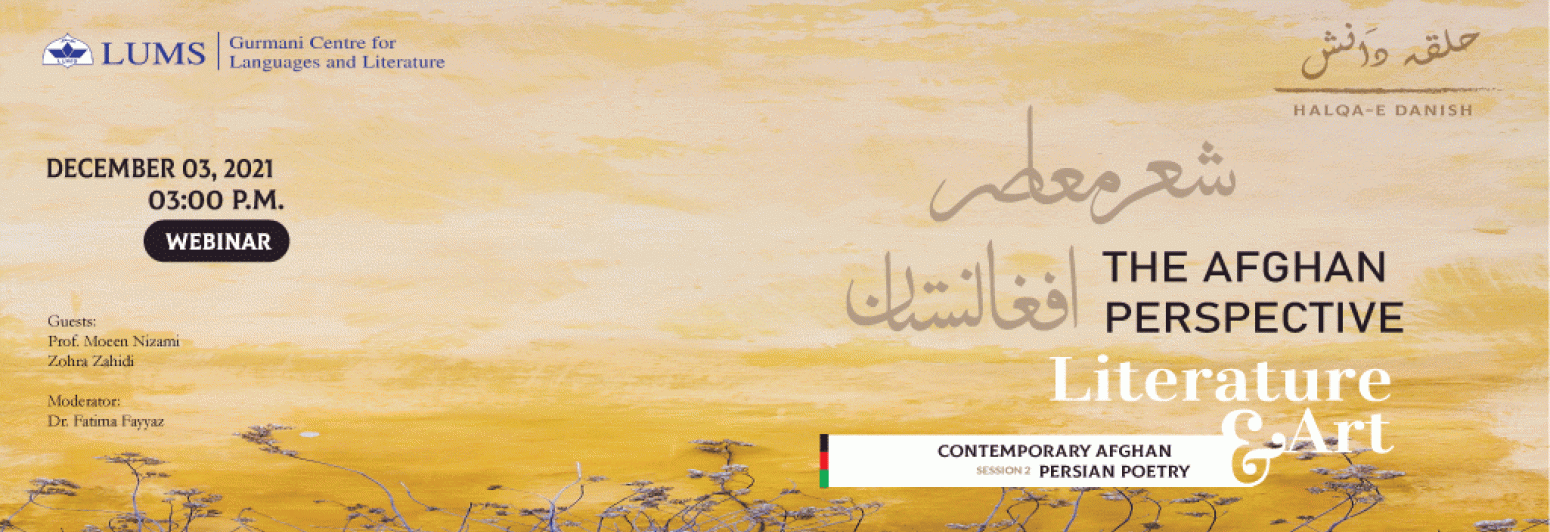
December 3, 2021
Date: Friday, December 3, 2021
Time: 3:00 pm
Afghan poet, Zohra Zahidi will share her personal poetic journey spanning more than two decades, while Prof. Moeen Nizami, an authority on Persian poetry, will discuss contemporary Afghan poets in light of the social, cultural and political nuances of their creations. Dr. Fatima Fayyaz, an expert of Persian language and literature at LUMS, will moderate this session.
Click here to join the webinar.
Prof. Moeen Nizami is a renowned poet, author, researcher, translator and professor of Persian language and literature. His interests include Sufism, codicology, Rumi and Iqbal studies, folk heritage and classical regional poetry. He has published several books in Pakistan, Iran, India & England and two of his publications have received prestigious awards by the Iranian Government. His upcoming work is an Urdu translation of selected poems by Sohrab Sepehri, a 20th century Persian poet. Prof. Nizami has served as the Head of the Persian Department & Hujveri Chair at the University of the Punjab as well as the Director of the Gurmani Centre for Languages and Literature, LUMS, from 2015-2017. He is currently serving as the Principal of Oriental College, University of the Punjab.
Zohra Zahidi was born in Afghanistan and raised in Iran at a time when society in this region was forced to witness changes of a wide variety. Moved by the conditions around her, she started writing poetry in 1997. Since then, her work has been published in several literary magazines in both Iran and Afghanistan. Her poetry revolves around multiple interrelated themes, including the turmoil of war, heartaches of exile, plight of women, and the complexity of love and emotions. Her first poetry collection titled Zamīn Barāyi Man Tang Ast was published in Tehran in 2014 by Irfan Publishers. Zahidi’s work soon received the acclaim it deserves bringing her several honors including the Simurgh Peace Award in 2012 by Arman Shahr Foundation, Kabul. She is a member of various literary societies, including the Khāneh-yi Adabiyat-i Afghanistan and Kanūn-i Adabi-yi Kalimeh.



















